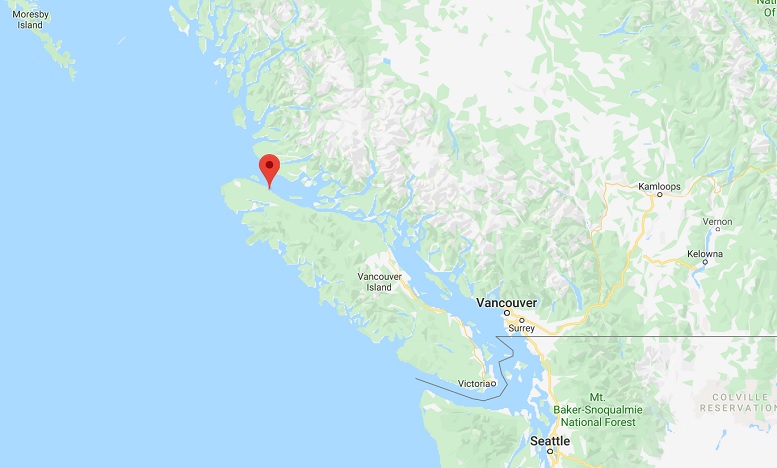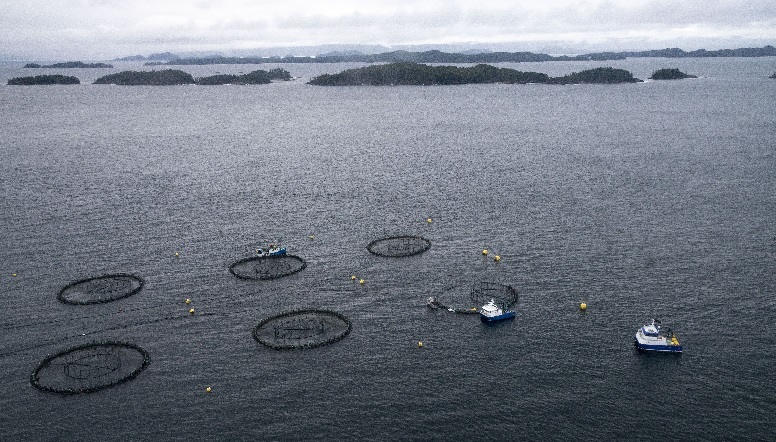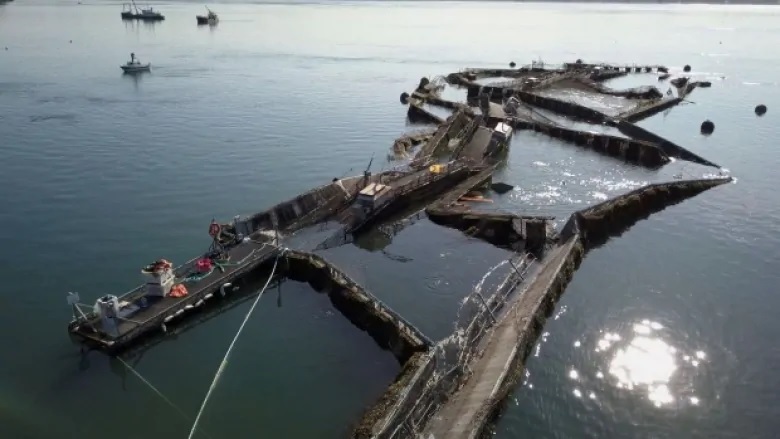(public comments may take up to 24h to appear after approval)
An electrical fire caused part of a large ocean fish pen to collapse allowing from 20,000-22,000 Atlantic salmon to escape into the Pacific ocean on Friday. The escape occurred at an operation near Port Hardy, British Columbia.

Red balloon points to Port Hardy on Vancouver Island (Google maps)
The escape has once again raised alarms among environmentalists and First Nations groups along the coast who say the non-native fish pose a threat to the native wild Pacific salmon stocks. They say the farmed salmon carry disease and will compete for food and space with the already declining Pacific salmon species.
Wild salmon advocate Tavish Campbell quoted by CTV says that “Based on the (fish farm) industry’s own numbers, over 80 per cent of all the farmed Atlantic salmon grown on the British Columbia coast are infected with the piscine reovirus (PRV)”. He and others say the farmed fish could also carry and introduce diseases not native to the Pacific.
Dr. Diane Morrison, managing director of Mowi Canada West says the young fish are all tested for PRV before transfer from the hatchery to the ocean pens. She says however there are no figures for PRV in the penned adults that escaped.

Aquaculture salmon pens in the ocean off British Columbia near Pt. Hardy showing the collapsed pen being surveyed. The industry continues to come under criticism from environmentalists and fishermen, but still continues to grow worldwide in number with farmed fish now surpassing worldwide beef production. ( courtesy Tavish Campbell)
The Canadian government has said it wants to develop a plan to transition from ocean pens to land-based farming by 2025. Environmentalists say there are pro and cons to either type of farming operation.
This is the latest in a number of incidents involving ocean pen salmon farming. In August 2017, fish pens operated by a Canadian firm, Cooke Aquaculture Pacific, collapsed at a location in northwestern Washington State with up to 300,000 thousand Atlantic salmon escaping. This has prompted the U.S. state to order a phase out of marine farming of Atlantic salmon and other non-native species by 2022.

The net pens for Cooke Aquaculture’s Atlantic salmon farm near Washington’s Cypress Island failed Aug. 19, 2017, allowing 250,000 non-native fish to escape. The Department of Ecology says the salmon are a pollutant in the Pacific. (Beau Garreau via CBC)
Several thousand other salmon escaped the same month from a Cooke operation near Victoria, on Vancouver Island. Earlier this year about 1,000 fish escaped in New Brunswick during a transfer. In 2013, another mass escape of about 20,000 farmed fish occurred from a Newfoundland pen.
The Port Hardy operation in this latest incident is run by Mowi Canada West which is a subsidiary of Norwegian parent company Mowi, which was formerly known as Marine Harvest, and which is the largest aquaculture firm in the world
Additional information-sources
- Canadian Press (via CBC) Dec 22/19: Up to 21,000 Atlantic salmon escape after B.C. fish-farm fire damages net pen
- Global News: S. Boynton: Dec 22/19: Nearly all Atlantic salmon escape B.C. fish farm pen after damaging fire
- CTV: J. St-Denis: Dec 22/19: Nearly 20,000 non-native salmon escaped after fire at B.C. fish farm
- CBC: L Johnson: Aug 22.17: Thousands of Atlantic salmon escape fish farm near Victoria after nets damaged
- Bangor Daily News: J.Holyoke: Sep 12/19: 1,000 farm-raised salmon escape from Canadian pen, some captured at New Brunswick dam







For reasons beyond our control, and for an undetermined period of time, our comment section is now closed. However, our social networks remain open to your contributions.